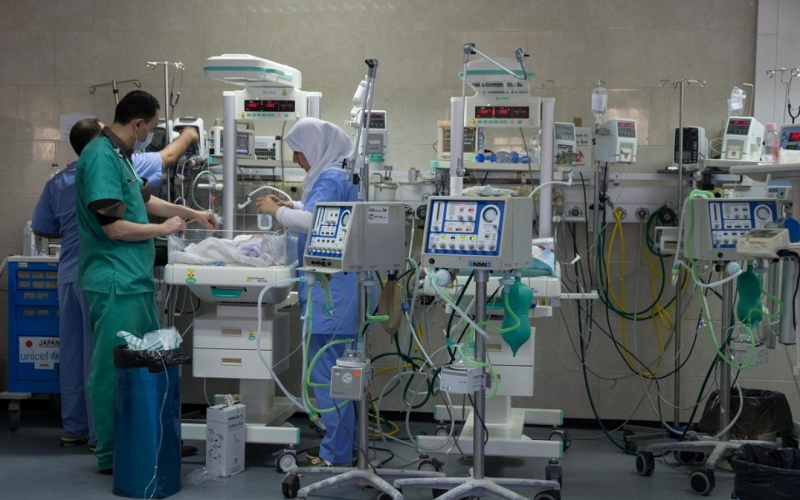Survival rate improves for extremely premature infants

A neonatal intensive care unit at Shifa hospital in Gaza City. (Photo by Alda Tsang/Pacific Press/LightRocket via Getty Images)
From the Washington Post:
Survival rates for very early preterm infants have improved slightly, according to a study* published in the New England Journal of Medicine on Wednesday. Those who survive are also somewhat less likely to suffer from neurodevelopmental impairments, the study found.
Researchers gathered survival and neurodevelopmental impairment data for 4,000 extremely premature infants by analyzing records from a National Institutes of Health research network. The infants were born between 22 and 24 weeks of gestation, rather than after a normal 40-week pregnancy.
Survival rates of such infants born between 2000 and 2011 rose from 30 percent to 36 percent. The percentage of preterm infants who did not develop neurological impairments increased from 16 percent to 20 percent.
“The survival rates are increasing over time, and the rates of impairment did not go up with that increase, which is very reassuring,” said study author Rosemary Higgins, a program scientist at the National Institute of Child Health and Human Development.
Better health care for expectant mothers and newborns may be contributing to higher survival rates and a lower percentage of infants with neurodevelopmental impairments, according to the authors of the study.
Wider use of steroids for women who are at risk of preterm birth may be a contributing factor as well, Higgins said. The drugs help lungs develop so the infants do not require ventilation therapy after birth, which sometimes damages the lungs and causes infections. Steroids also reduce the likelihood of other long-term complications, Higgins said.
The study also found that fewer premature infants had sepsis, which could also contribute to the decrease in neurodevelopmental impairments.
Caring for preterm infants often involves difficult choices for parents, because many life-support procedures are painful and have a low chance of success. Even if preterm infants are given intensive treatment, many develop hearing loss, blindness, cerebral palsy, and other severe intellectual disabilities, according to the authors of the study.
This study has important health-care implications for sick or premature infants, according to Higgins. “Our study provides important information for physicians and family members planning the care of these extremely fragile newborns,” Higgins said.
*Researchers at Emory and Children's Healthcare of Atlanta are part of this Neonatal Research Network Study